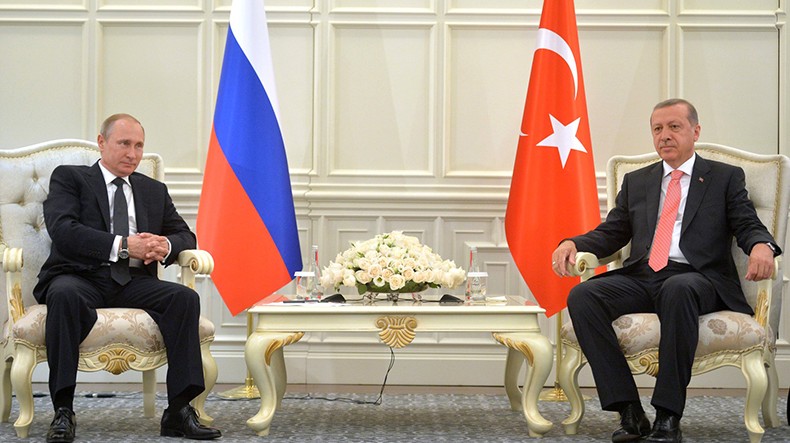
Middle East conflict risks overspill into the Caucasus: SIRPI
The South Caucasus has a long history of violence and militarization. Now the conflict in Syria, through growing tensions between Russia and Turkey, risks spilling over into this region, analyst Neil Melvin writes for Stockholm International Peace research Institute (SIRPI).
The author recalls that Turkish military transport helicopters crossed into Armenian air space following Turkish allegations of Russian violations of its airspace in early October 2015. Within this context the author emphasizes Russian attempts to reinforce its military contingent in Armenia through deploying additional attack and transport helicopters to its airbase in Armenia.
Neil Melvin reflects on the already intense situation in the South Caucasus, namely, the Nagorno Karabakh conflict which, as he puts, despite over twenty years of mediation by the OSCE remains unsolved. “In recent years, rising violence and deaths along the Line of Contact and the first use of heavy artillery since the 1994 ceasefire has raised concerns that the conflict is destabilizing with a risk of a return to full-scale warfare,” the author writes.
He then assesses that a close security relationship with Russia has been a key part of Yerevan’s defense plan for the Karabakh region, stating that Russia has provided Armenia with large quantities of armaments. Including the Smerch multi-launch rocket system, capable of delivering 12 300-milimeter rockets in less than a minute, as well as Russian-made anti-tank weapons, shoulder-fired surface-to-air missiles, etc.
“The Russian military presence in Armenia has usually been viewed in the context of the security issues of the South Caucasus and notably in relation to the Karabakh conflict. The bases were, however, established initially in the early 1990s to prevent Turkey entering the Armenia-Azerbaijan conflict on the side of Baku. As a result of these tensions, the Turkish border with Armenia has been closed since 1993. Rising Russia-Turkey tensions have brought back into focus the possibility that Russian military facilities could function as a staging base to strike neighboring countries, notably Turkey,” the author writes.
The author predicts that any violent confrontation involving Russia, Turkey and Armenia would inevitably also draw in Azerbaijan, Turkey’s ally, while Russia would seek to resupply its Armenian bases through Georgia, the only overland route, risking further confrontation with Tbilisi.
“The confrontation that has already been created in the Caucasus is unlikely to abate until a full peace agreement has been put in place. Even then, developments in the Caucasus and in the Russia-Turkish relationship underline that peace will ultimately have to be a regional process designed to rebuild the security relations that have been strained and broken by the war in and around Syria,” the author writes.
Newsfeed
Videos






























